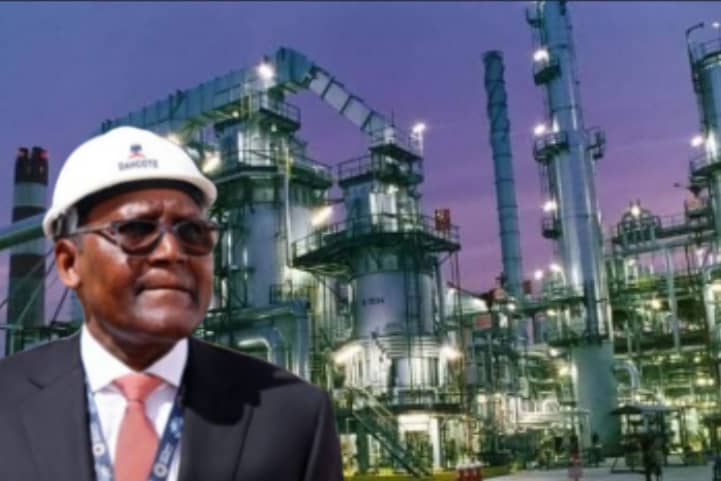Business
Dangote Set to Begin Crude Oil Production Soon, Reports Indicate

According to recent reports, Dangote Group is preparing to commence crude oil production in Nigeria, marking a significant milestone in the company’s energy sector expansion.
According to a report by S&P Global Commodity Insights, the Dangote Group plans to commence production at its two oil assets in Nigeria during the fourth quarter of 2024 after experiencing several months of challenges with crude supply.
According to the report, which cites company sources, Dangote is actively pursuing a Floating Production Storage and Offloading (FPSO) vessel capable of handling 650,000 barrels of crude oil.
The company owns an 85% stake in West African E&P Venture, which holds a 45% working interest in the two blocks. The remaining 55% is owned by the state-run Nigerian National Petroleum Company.
The other stakeholder in West African Exploration and Production is the Nigerian upstream company First E&P, which manages OMLs 71 and 72.
The licenses are situated in the shallow waters of the southeast region of Nigeria’s troubled Niger Delta, merely 22 kilometers from the onshore Bonny terminal. They encompass the Kalaekule and Koronama oilfields.
Initial discoveries on the blocks were made in 1966, and Shell commenced production about twenty years later. Production reached its maximum at 21,000 barrels per day in 1999 before experiencing a decline starting in 2003.
According to Commodity Insights data, the fields still contain nearly 300 million barrels of recoverable oil and up to 2.3 trillion cubic feet (Tcf) of natural gas.
Commodity Insights anticipates that production at the blocks could commence in 2026, reaching a level of 43,000 barrels of oil equivalent per day by 2036.
Supply challenges
Dangote’s upstream activities are rarely highlighted, but the forthcoming launch of production at OMLs 71 and 72 indicates that the Dangote refinery might soon enhance its crude feedstock. This development comes after experiencing several months of challenges with crude supply.
The $20 billion facility became operational in January, launching its residue catalytic cracker in early September. This development enables high-volume gasoline production once the unit stabilizes, which could happen as soon as October, according to a company executive.
The refinery was created to eliminate Nigeria’s long-standing reliance on imported refined products. So far, it has successfully produced quantities of petrol, diesel, jet fuel, and naphtha for both domestic use and export purposes.
In its initial months, the plant faced difficulties in securing adequate Nigerian crude, necessitating significant imports of WTI Midland crude from the US. This situation led to a contentious public dispute involving NNPC, international oil companies, Dangote, and Nigeria’s upstream regulators.
The NNPCL, initially anticipated to provide Dangote with 300,000 barrels per day of crude in exchange for a 20% stake in the project, eventually had their share reduced to 7.2%.
According to S&P Global Commodities at Sea, Dangote acquired slightly less than 200,000 barrels per day of Nigerian crude in September. The CAS data indicates that it hasn’t imported any US crude since mid-July.
Nonetheless, Dangote has suggested the option of sourcing crude from other oil producers such as Libya, Senegal, and even Brazil. According to company sources, there’s concern that NNPC might only be able to meet 60% of its crude requirements.
Analysts from Commodity Insights anticipate that the refinery will require until approximately 2027 to achieve steady-state production, at which time it is expected to produce about 327,000 barrels of petrol per day.
